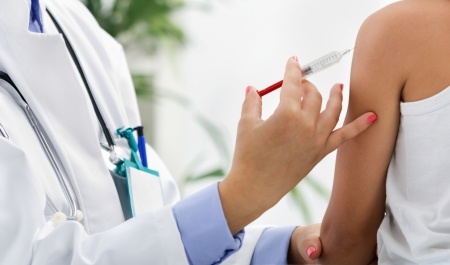HPV with Gardasil Vaccine Info
 HPV (human papillomavirus) is a common virus that is spread through oral, anal and vaginal sex or intimate skin-to-skin contact. Out of the over 100 strains of HPV that have been identified, only about 12 are known to cause genital warts and approximately 15 are linked to cervical cancer.
HPV (human papillomavirus) is a common virus that is spread through oral, anal and vaginal sex or intimate skin-to-skin contact. Out of the over 100 strains of HPV that have been identified, only about 12 are known to cause genital warts and approximately 15 are linked to cervical cancer.The majority of women who are sexually active will have HPV at some time in their lives, but not all will have symptoms or develop genital warts or cancer. In fact, many women with HPV are not even aware they have it.
Cervical cytology screenings, or Pap smears, can identify abnormal cell changes on the cervix in the early stages. This allows your gynecologist to initiate treatment before cancer develops.
An HPV test can also be done to look for the virus in women. The test is different from the Pap, but can be done at the same time or as a follow-up when Pap results are abnormal. The HPV test doesn’t identify all strains of the virus, but it can detect 13 or 14 of the most common strains.
Limiting your number of sexual partners and using condoms every time you have sex are the best ways to prevent HPV infections, but these methods will not completely protect you from the virus.
Gardasil is the only vaccine currently approved by the FDA for the prevention of four types of HPV. For maximum effectiveness, the Centers for Disease Control and Prevention recommend Gardasil be administered to both boys and girls at ages 11 or 12, but the vaccine can be given in three doses over a six month period anytime between the ages of 9 to 26.
Even girls and women who have received Gardasil should continue to have regular Pap smears as recommended by their gynecologist.
